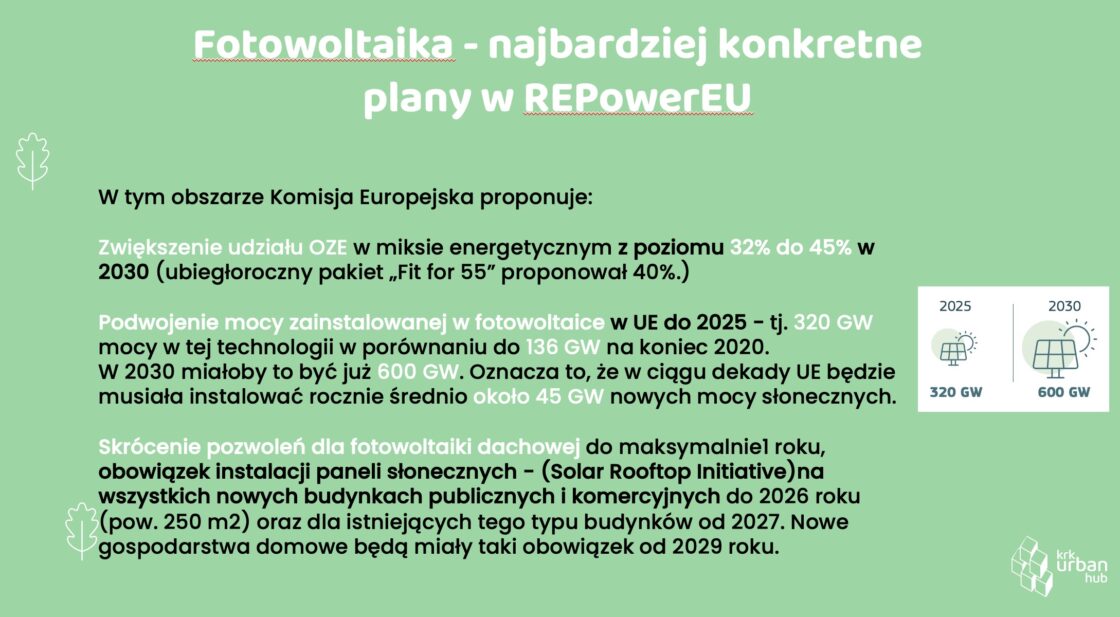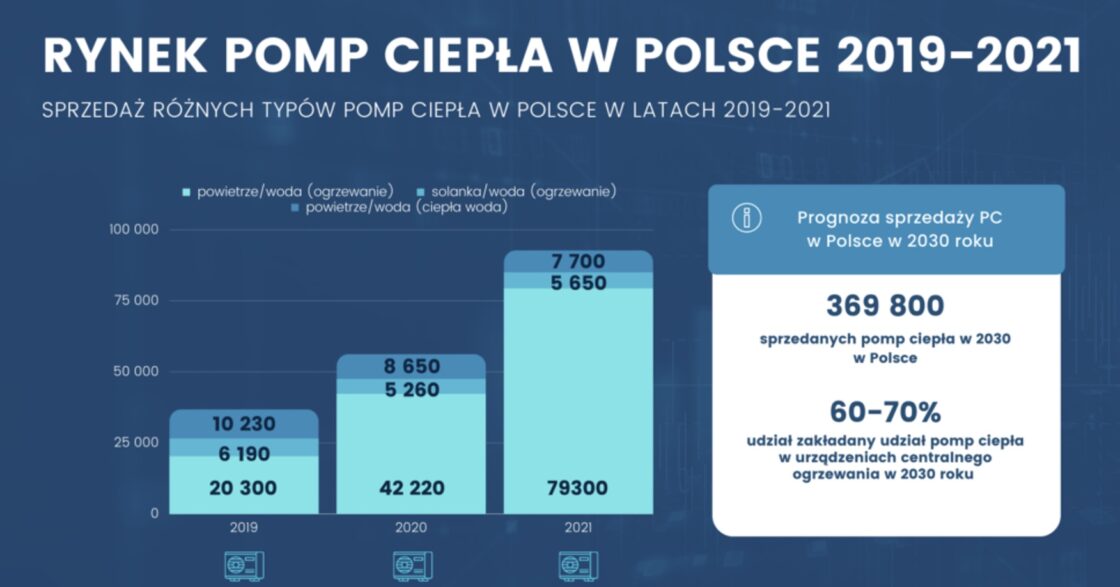Webinar “The future of photovoltaics / heat pumps? Solutions for Accessibility”
SPCleantech participated on 23/06/2022 in another industry meeting in the form of THINKTANK on the subject of “The future of photovoltaics / heat pumps? Solutions for Accessibility ”as a co-organizer of the event.
Photovoltaics and a heat pumps are a combination that allows you to achieve energy self-sufficiency. Photovoltaics enables the production of electricity based on solar radiation, which reduces electricity bills and makes it independent from external companies.
In turn, the heat pump provides free heat energy, which allows you to heat buildings, heat domestic hot water, and cool rooms. The use of renewable energy sources means savings, safety, independence and ecology. All these aspects were covered during the webinar.
After the meeting was opened by Małgorzata Fedorczak from MCBE, dr hab. Eng. arch. Patrycja Haupt, prof. PK – Project Manager “Accessibility Hub – Accessibility Learning Center” was asked to explain how the introduction of such solutions affects accessibility, in particular emphasizing the economic aspect of people with disabilities, for example.
Dr. Jacek Biskupski, President of the Management Board of the Association of the Photovoltaic Industry POLSKA PV, working as a lecturer at PK I AGH and having the qualifications of a designer / installer of PV systems (UDT), Energy Certifier (PK), and Installer of heat pumps and PV shared his experience not only as an expert, but also also a user of the nZEB house in Jerzmanowice.
Next, Janusz Kahl, the president of SPCleantech, drew attention to the global aspect related to the current situation in Ukraine and presented the details of the latest initiative in the form of the European Commission’s REPowerEU Communication and an emergency plan to increase the resilience of the EU-wide energy system in the face of the Russian invasion of Ukraine.
After this speech, Prof. Elżbieta Radziszewska-Zielina from the Department of Construction Management, who is also the head of the Engineering Process Optimization Team at the Scientific Research Improvement Center of the CUT presented what scientific initiatives in the field of photovoltaics are currently carried out at PK and whether the PK is expertly prepared to provide such services for the social and social environment. economic.
Dr. Małgorzata Fedorczak Cisak presented how the solar farm integrated with the building will develop in the coming years. This is a completely different type of installation from what is installed today. These types of installations will require a different approach from installers and architects and she asked if this is the future of construction?
Prof. dr hab. Eng. arch. Justyna Kobylarczyk, Vice-Dean for Science, WA PK they are great at designing buildings with the use of new solutions.
Dr hab. Eng. arch. Przemysław Markiewicz-Zahorski, prof. PK talked about the current situation with the design of buildings in the context of photovoltaics and heat pumps and the requirements of customers who choose such solutions.
Beata Sadowska presented how from the position of the average Kowalski in the situation of rising energy prices the savings related to the use of the discussed solutions look like on the example of a house with an area of 200 sq m. with a family of 4.
At the end, Monika Firlej, who conducted the webinar, and Patrycja Haupt thanked for participation in the meeting and invited to the next meeting on June 28, 2022.




